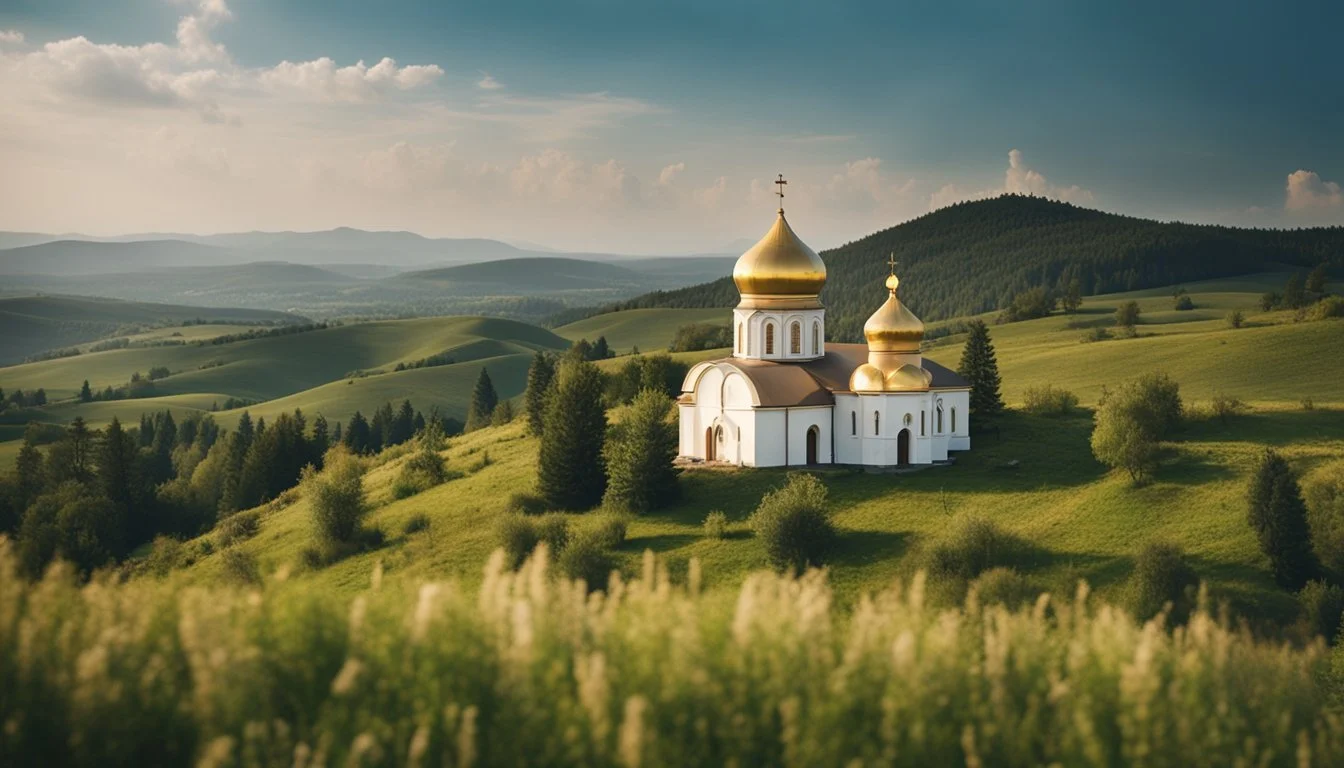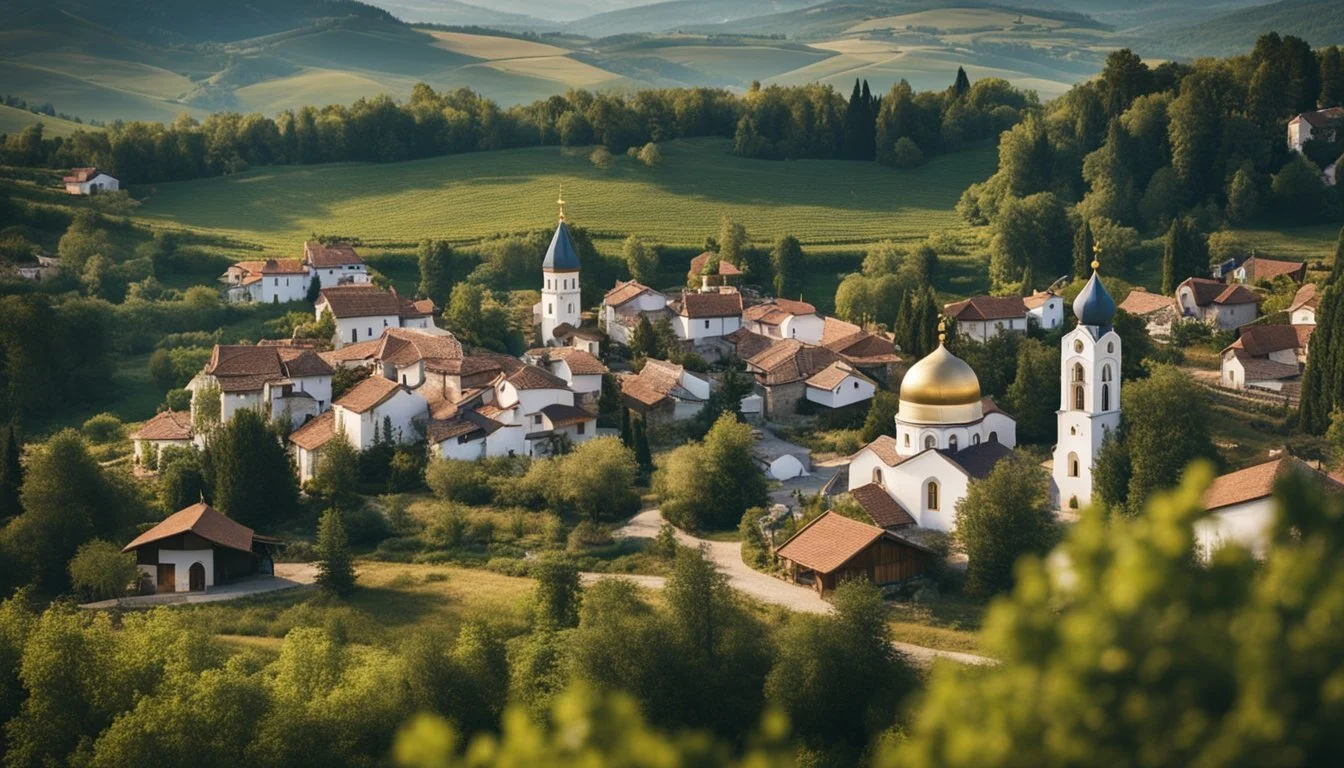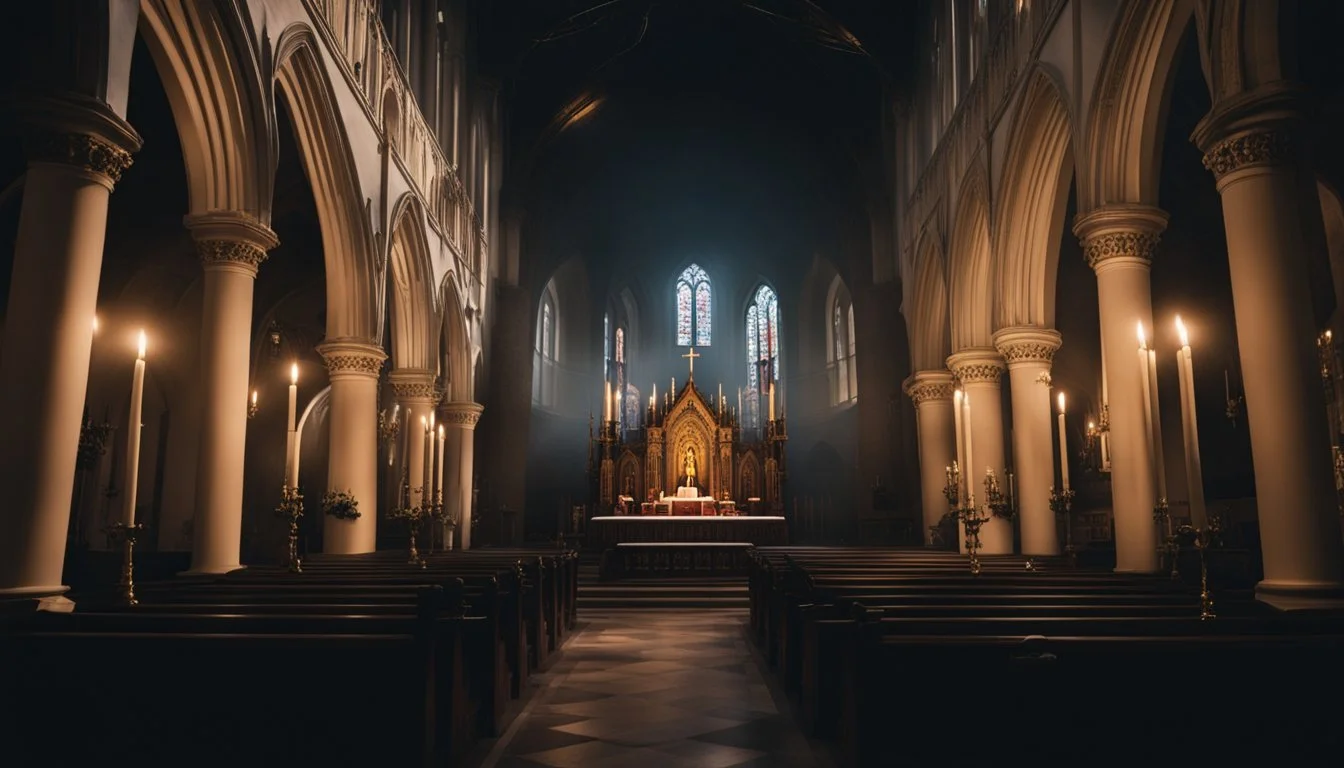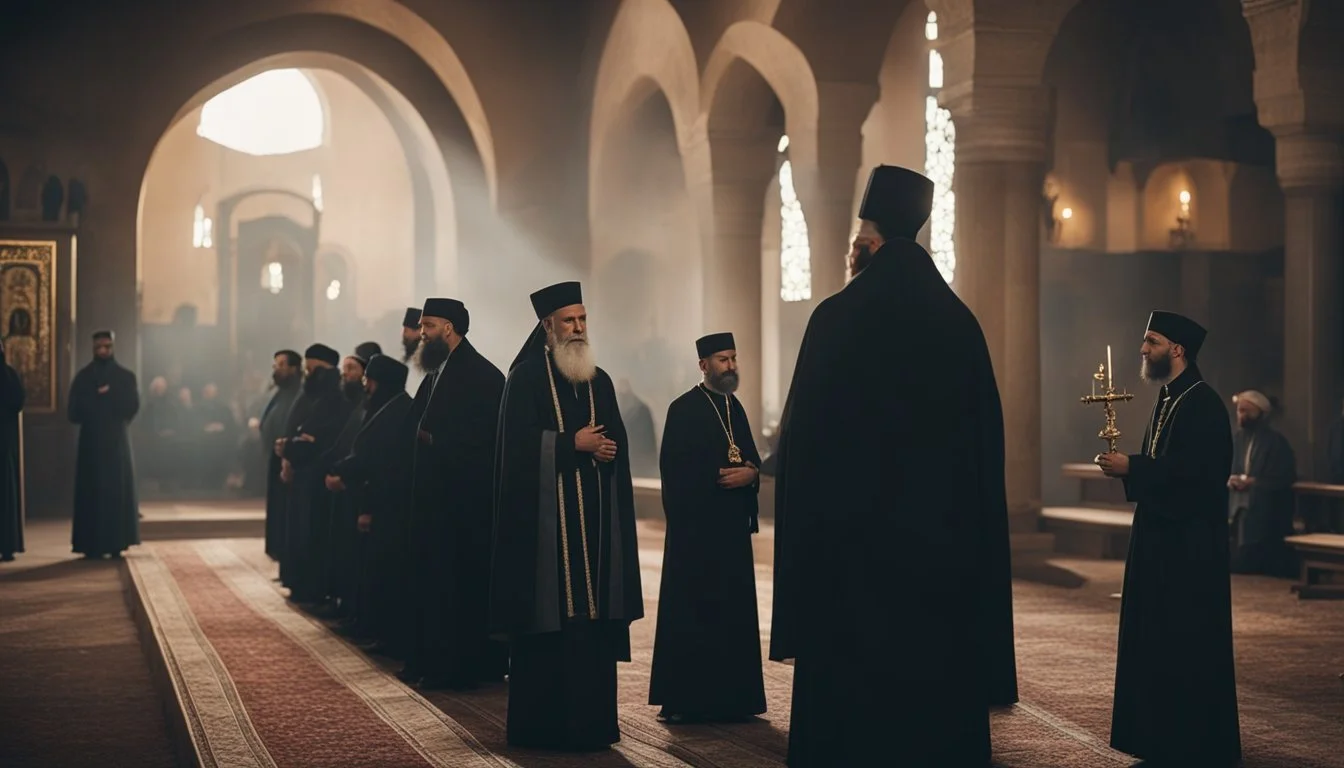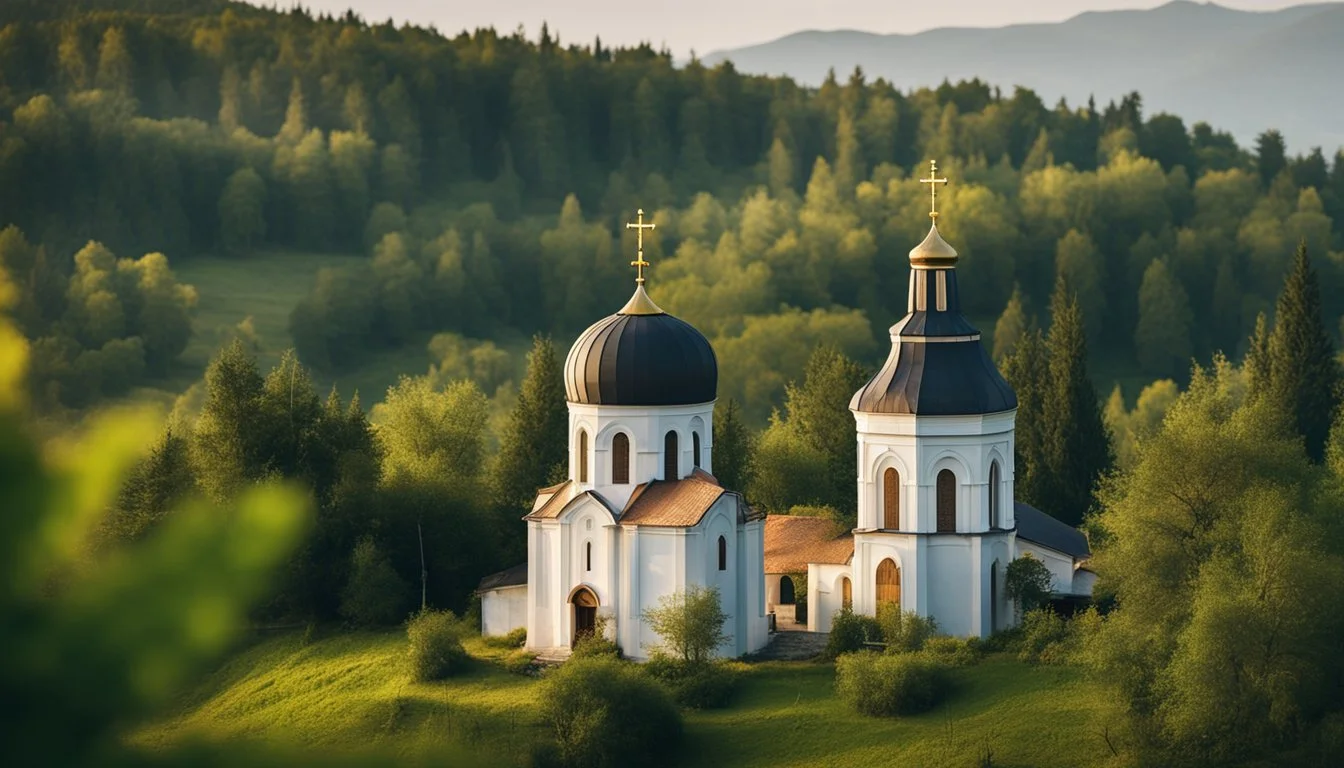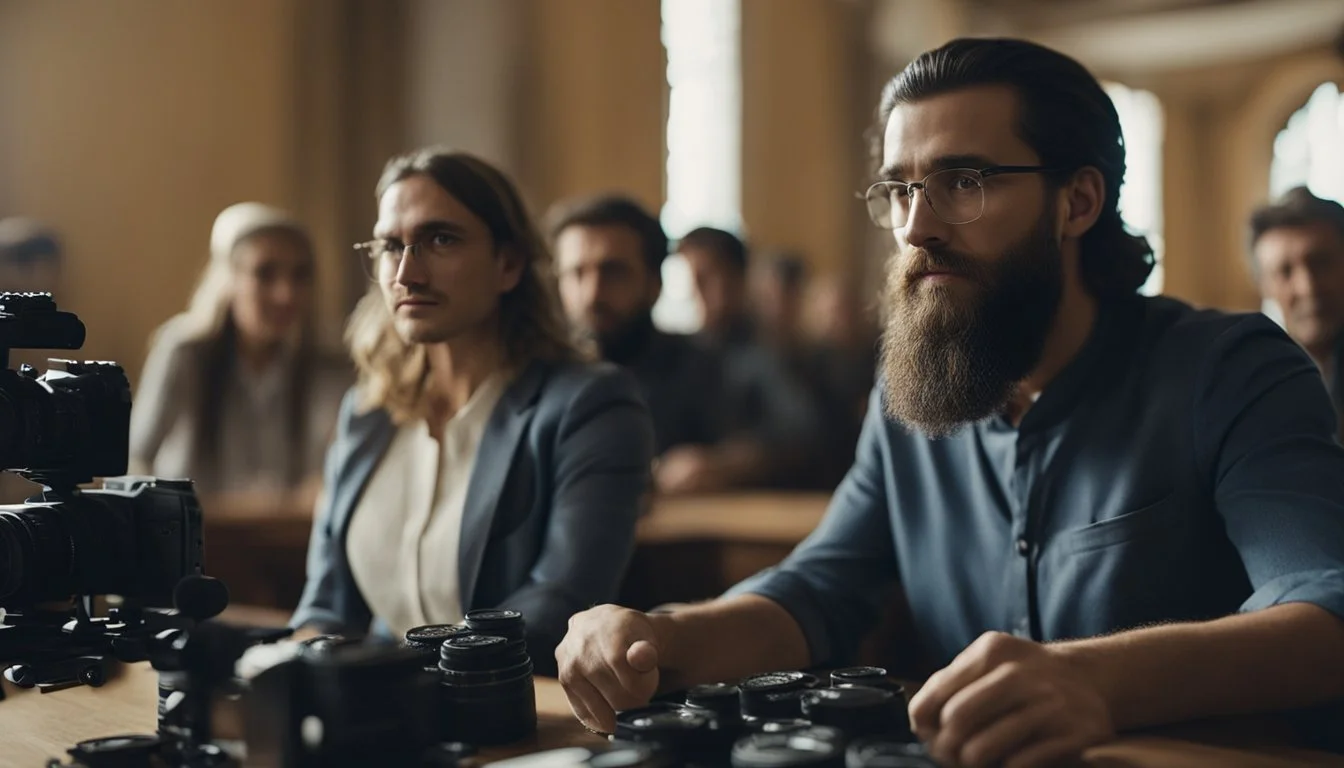8 True Crime Documentaries About Orthodox Christian Communities Unveiled
True crime documentaries captivate viewers by exploring real-life mysteries and criminal activities, often shedding light on lesser-known aspects of various communities. Orthodox Christian communities, with their unique traditions and tight-knit structures, provide a rich backdrop for compelling narratives.
For readers interested in the intersection of faith, crime, and community dynamics, these documentaries offer invaluable insights into the complexities and challenges faced by Orthodox Christian groups. Each film not only unravels intricate tales of wrongdoing but also provides a deeper understanding of the cultural and spiritual elements at play.
1) One of Us (2017)
"One of Us" is a documentary available on Netflix, directed by Heidi Ewing and Rachel Grady.
The film explores the challenging experiences of three Hasidic Jews attempting to leave their insular ultra-Orthodox community.
Ari Hershkowitz, one of the subjects, shares his story of enduring trauma and abuse within the community, which led him to seek a new life outside its confines.
The documentary provides a rare glimpse into the customs, beliefs, and rigid structures of the Hasidic world in New York City.
Viewers can see the emotional and social obstacles faced by those who choose to separate from this tight-knit community.
It also highlights the significant personal risks involved, such as ostracism and anxiety, for individuals breaking away from their past.
"One of Us" offers a powerful narrative of resilience and self-discovery in the face of daunting challenges.
For more information on the documentary, visit the IMDb page.
2) Keep Sweet: Pray and Obey (2022)
"Keep Sweet: Pray and Obey" is a true-crime docuseries that dives into the life and criminal activities of Warren Jeffs, the leader of the Fundamentalist Church of Jesus Christ of Latter-Day Saints (FLDS).
Directed by Rachel Dretzin, this four-part documentary examines the rise of Jeffs within the FLDS.
The series documents his manipulative control over his followers and the extent of his criminal actions.
Warren Jeffs enforced strict polygamous practices and exploited his power for personal gain. The series features interviews with former members who recount their harrowing experiences.
The documentary captures the unsettling realities of living under Jeffs' authoritarian rule.
It sheds light on how Jeffs maintained control through fear and manipulation. Viewers are provided with an in-depth look at the mechanisms of the FLDS cult.
The series was released on Netflix on June 8, 2022, offering both shocking revelations and detailed storytelling.
For more information, visit IMDB - Keep Sweet: Pray and Obey.
3) The Family I Had (2017)
The Family I Had explores the devastating impact of a family tragedy. An ordinary night at work turned into a nightmare for Charity when she got a call about her daughter's murder. Her son, Paris, just 13, had brutally killed his 4-year-old sister, Ella.
The documentary started as an examination of the juvenile justice system. Filmmakers Carlye Rubin and Katie Green quickly shifted their focus as they uncovered the harrowing details of the Lee family's story.
Paris' crime led to deep emotional and legal consequences. The film provides an intense and personal look into the traumatic aftermath for the family.
By focusing on the real-life tragedy, The Family I Had offers a raw perspective on crime and its repercussions. The documentary doesn't just tell a story; it presents a complex narrative of grief, forgiveness, and the quest for understanding.
For more information, visit The Family I Had on IMDB.
4) Holy Hell (2016)
"Holy Hell" is a compelling documentary directed by Will Allen, exploring his experiences as a member and videographer of The Buddhafield, a controversial group led by Michel Rostand.
The film provides an inside look at the inner workings of this secretive community, highlighting the charismatic leadership and intense control exerted over members.
Allen documents the history of the cult from its founding in the 1980s, using footage he captured during his two decades inside the group. Interviews with former members reveal the psychological manipulation and emotional abuse they endured.
This raw and personal film exposes the stark realities behind seemingly serene and devoted communities.
For more information on "Holy Hell," visit IMDB.
5) The Devil's Trap (2021)
"The Devil's Trap" delves into the unsettling intersection of faith and crime within a secluded Orthodox Christian community.
Set in Eastern Europe, this chilling documentary unravels the stories of several community members entangled in heinous criminal activities. They claimed to be guided by religious visions and manipulated by charismatic leaders.
Focusing on both the psychological and spiritual aspects, the film examines how deeply entrenched beliefs can be exploited to justify deviant behavior. Viewers gain insights into the ways religious fervor can be perverted for sinister ends.
While the community outwardly appears pious and devout, hidden beneath the surface are shocking secrets of manipulation, deceit, and crime. Authorities struggle to break through the community's tight-knit bonds to uncover the full extent of these offenses.
For more details on "The Devil's Trap," visit Wikipedia.
6) Prophet's Prey (2015)
Prophet's Prey is a documentary that delves into the life and influence of Warren Jeffs, the leader of the Fundamentalist Church of Jesus Christ of Latter-Day Saints (FLDS). Through interviews with Church insiders and victims, it highlights how Jeffs used manipulation and abuse to control his followers.
The film explores Jeffs' rise to power and the mechanisms he employed to maintain an iron grip on his community. It reveals the inner workings of the FLDS, exposing the strategies used to enforce compliance and obedience. Personal testimonies offer a profound look at the impact of his authoritarian rule.
The documentary also examines the financial exploitation within the FLDS community. Jeffs's ability to claim a direct connection to God allowed him to marry numerous underage girls and harvest the community's resources for his benefit. This dark narrative is brought to light through meticulous documentary craftsmanship.
For more information, visit the IMDB page.
7) Inside the Church of Almighty God
The Church of Almighty God, also known as Eastern Lightning, is a controversial new religious movement in China. It has faced significant persecution from Chinese authorities. Founded in 1991, the group has been labeled a cult by the Chinese government, which claims its practices are extreme and its influence destabilizing.
Many documentaries explore the complex socio-political climate surrounding the Church. Reports often highlight the harsh treatment its members endure under government crackdowns. These films provide personal testimonies, shedding light on the lives of those practicing their faith amidst intense scrutiny.
Massimo Introvigne, a notable sociologist, has done extensive research on the group. His documentaries and writings offer an in-depth look into the community’s beliefs and the resistance they face. The church's narrative is interwoven with themes of human rights and religious freedom.
The documentary "Inside The Church of Almighty God" (2020) offers a thorough examination. It includes interviews with members and footage that illustrates their daily challenges. The film serves as both a critical resource for understanding the group and a stark reminder of the broader issues of religious persecution in China.
"Inside The Church of Almighty God" (2020) on Wikipedia
8) The Sons of Perdition (2010)
"The Sons of Perdition" is a documentary released in 2010. It follows the lives of three teenage boys who escape from the Fundamentalist Church of Jesus Christ of Latter-Day Saints (FLDS), a secretive polygamist sect.
After leaving their community, these boys must navigate life outside the insular environment they grew up in. The documentary showcases their struggles as they try to adapt to mainstream society.
Warren Jeffs, the self-proclaimed prophet of the FLDS, plays a central role by exiling these teenagers from their families and community. The film provides a rare glimpse into the hidden world of polygamy through their eyes.
With unprecedented access, the filmmakers capture the emotional and physical challenges faced by these young men. The documentary highlights the difficulties of leaving behind everything familiar to start anew in a world they know little about.
The film premiered at the Tribeca Film Festival and received attention for its raw and honest portrayal of life after leaving a religious sect. It continues to be a significant piece in understanding the impact of religious extremism on youth.
For more information, visit the Wikipedia page for "Sons of Perdition".
Common Themes in True Crime Documentaries
True crime documentaries often explore deep and complex issues within communities, focusing on aspects such as isolation and the impact on community members. These themes help viewers understand the underlying factors that contribute to criminal behavior and the consequences for those involved.
Exploring Religious Isolation
True crime documentaries about Orthodox Christian communities frequently explore religious isolation. This isolation stems from strict adherence to religious beliefs and practices, which creates a close-knit and insular environment. Community members often have limited interactions with the outside world.
Religious isolation can lead to a lack of outside perspectives and influences. This environment can foster extreme behaviors and ideologies. Such documentaries often illuminate how insularity can lead to suspicion of outsiders and reluctance to engage with law enforcement. Consequently, crimes may go unreported or be handled internally, sometimes exacerbating the situation. Additionally, the pressure to conform can cause psychological stress for individuals struggling with their faith or community expectations.
Impact on Community Members
The impact of true crime on community members in Orthodox Christian settings is another common focus. Crimes, especially those involving violence or deception, significantly affect the psychological and social wellbeing of individuals. Trust within the community can be shattered, leaving lasting scars.
Victims and their families often face stigma and ostracism within their tight-knit communities. The psychological impact can be severe, with feelings of betrayal and fear causing long-term trauma. Social repercussions include the disruption of communal harmony and internal conflicts. These documentaries reveal how crime affects not just the immediate victims, but also the entire community, challenging their identity and cohesion.
Challenges Faced by Filmmakers
Creating documentaries about Orthodox Christian communities presents unique challenges that require careful consideration. Filmmakers must balance ethical responsibilities with cultural sensitivities, ensuring they portray their subjects with respect and integrity.
Ethical Considerations
Filmmakers often face ethical dilemmas when documenting Orthodox Christian communities. Gaining informed consent from participants is crucial. The insular nature of these communities may make members reluctant to share their experiences, particularly if it involves sensitive issues. Misrepresentation is another concern. Ensuring the documentary accurately reflects the community’s beliefs and practices without sensationalism is essential.
Privacy is also a significant issue. Filmmakers must navigate the delicate balance between telling a compelling story and respecting the privacy of individuals featured. Ethical considerations extend to the impact of the documentary on the community, both during and after its release, requiring constant vigilance and thoughtful decision-making.
Navigating Cultural Sensitivities
Cultural sensitivities play a significant role in how filmmakers approach their subjects. Orthodox Christian communities have unique traditions and religious practices that must be depicted with accuracy and deference. Filmmakers need to educate themselves about these customs to avoid cultural faux pas that could offend or misrepresent the community.
Language barriers can also present challenges. In many Orthodox communities, religious services are conducted in ancient languages, and members may speak various regional dialects. This requires careful translation and interpretation to ensure accuracy. Additionally, gender roles may influence access to certain events or individuals, requiring filmmakers to be adaptable and respectful of community norms. Balancing these factors is critical to producing a documentary that is both informative and respectful.

